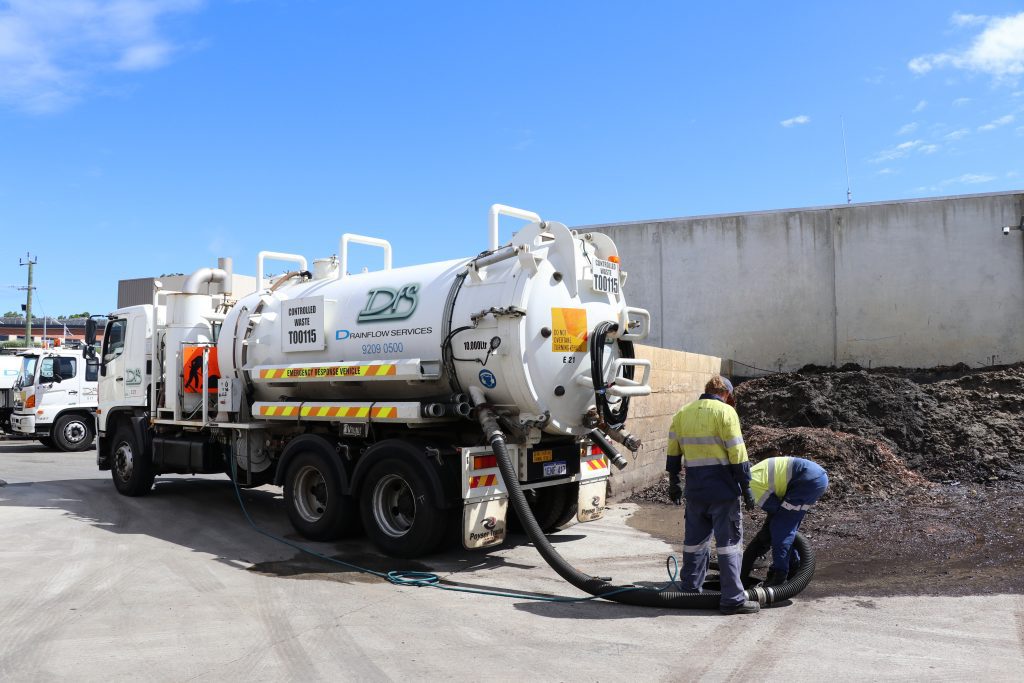7 Simple Techniques For Reclaim Waste
7 Simple Techniques For Reclaim Waste
Blog Article
Our Reclaim Waste Statements
Table of ContentsSome Ideas on Reclaim Waste You Need To KnowEverything about Reclaim WasteReclaim Waste Fundamentals ExplainedReclaim Waste Can Be Fun For EveryoneUnknown Facts About Reclaim Waste
Through appropriate fluid waste administration, business can reduce energy-intensive treatment procedures and disposal expenses. By adhering to a system for managing fluid waste, business can prevent costly penalties and fines and stay clear of negative publicity.(https://zenwriting.net/reclaimwaste1/innovative-industrial-wastewater-treatment-solutions-by-reclaim-waste)Gather representative examples from different points within the waste stream to ensure precision. Fluid waste, particularly harmful ones, postures significant dangers throughout this action.

Disinfection (e.g., chlorination, ultraviolet light, ozonation) and nutrient removal (e.g., denitrification and phosphorus removal) are suggested under strict laws. Various business violated numerous liquid waste disposal guidelines in current years.
The Best Strategy To Use For Reclaim Waste

are made use of by markets that create large quantities of low-toxicity fluid waste. Superficial basins include fluid waste that is permitted to vaporize via natural processes. The deposit left can be taken care of in landfills. involves shedding liquid waste at heats and transforming it right into gas and ash. This type of disposal undergoes strict ecological regulations as a result of potentially harmful emissions.
The searchings for should be documented, assessed, and stored not simply for entry to regulative authorities yet additionally for making enhancements in the future. Share details with appropriate stakeholders (e.g., staff members, regulatory federal government firms, and close-by neighborhoods) to keep openness and responsibility.
Recognizing these can aid them successfully manage their operations and reduce their ecological influence. Business that can't spend in centers need to take into consideration working together with the public field for much better options.
Examine This Report about Reclaim Waste
By look at this now executing comprehensive monitoring systems that consist of treatment and reusing techniques, routine monitoring, threat evaluations, and adherence to local and government policies, industrial centers can contribute to the security of groundwater supplies, ensuring their availability for future generations (industrial wastewater treatment). Allow's dig into the value of effective fluid waste management in the commercial industry, concentrating on its ramifications for guarding groundwater sources
The pollution of groundwater sources due to inappropriate liquid waste monitoring in the industrial market has far-ranging consequences for human health and wellness, farming, and the environment in its entirety. A few of the prospective effects brought on by such contamination include: Infected Alcohol consumption Water Products: As groundwater supplies a considerable part of our alcohol consumption water, air pollution from industrial tasks can result in unsafe chemicals and microorganisms entering our water systems, positioning health and wellness threats for humans.
Minimized Agricultural Efficiency: Farming depends heavily on groundwater for watering; as a result, polluted water can impede crop returns, infect agricultural items, and impact food safety and security. Provided the relevance of protecting groundwater resources, it is essential for organizations to take an aggressive position in handling their fluid waste responsibly and avoiding contamination.
Reclaim Waste Fundamentals Explained
Fluid waste can infect land and contaminate waters. Under the Protection of the Environment Procedures Act 1997, services that generate fluid waste are needed to manage it in a means that secures the atmosphere and the neighborhood. Details regarding managing and keeping fluid waste, replying to spills and reducing liquid waste is offered in the adhering to truth sheets and support:.
Water, the significance of life, is under constant hazard from contamination. The function of waste management professionals in guarding this valuable resource can not be overstated. Their solutions consist of: Sewage-disposal tank and grease catch cleaning: Important for stopping damaging toxins from entering our water systems. Contaminated water and contaminated effluent administration: Making certain that harmful fluids are securely eliminated and dealt with prior to they can damage our water sources.
Thus, integrating lasting liquid waste administration into financial preparation boosts economic stability and shields the environment, demonstrating the value of this strategy. In final thought, adopting expert liquid waste management techniques is important for ensuring a sustainable future, shielding our environment and safeguarding the health of future generations.
When it involves taking care of waste, adhering to proper procedures is important for a plethora of reasons. Correct garbage disposal is not practically sanitation; it has to do with ensuring the health of our setting, wellness, and the effective use resources. Recognizing the value of efficient waste monitoring can help us all contribute to a much healthier, cleaner planet.
About Reclaim Waste
Effective waste management helps preserve tidy roads and public areas, reducing the visual effect of litter and guaranteeing that waste does not harm wildlife. When waste is not disposed of effectively, it can bring about pollution, where hazardous materials can seep into the soil, water supply, and the air, creating lasting ecological issues.
Report this page